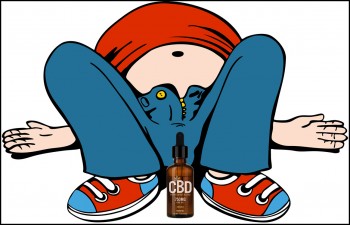
Sleep apnea is a common sleeping condition that causes one to stop breathing during sleep.
The nature of sleep apnea – which results in irregular breathing disorders during sleep – makes this a very dangerous yet under-diagnosed condition. When left untreated, sleep apnea can cause serious and often fatal complications but when it’s caught early, it can be managed and even treated.
Individuals with sleep apnea stop breathing either because there is a blockage in the airway (known as obstructive sleep apnea), or the brain has difficulties controlling breathing (central sleep apnea). These interruptions can last anywhere from a few seconds or minutes at a time, and they tend to occur several times throughout the night. Sleep apnea is incredibly dangerous because interrupted sleep results in chronic fatigue, memory problems, mood swings, and strains the heart. Furthermore, not getting enough sleep can lead to a higher risk of accidents during the day.
Thankfully, sleep apnea is treatable and manageable. Lifestyle changes are usually the first line of defense, along with oral appliances such as the CPAP or other breathing appliances. Cannabis has also been shown to help in more ways than one; it’s been widely used to treat a number of sleep issues and can also help with some aspects of sleep apnea.
Here’s what the latest studies have to say about it.
Biggest Study On Sleep Apnea Finds Solid Benefits
Minnesota state investigators analyzed 3,102 patients of sleep apnea who were enrolled in the medical marijuana program.
In a study, they discussed how 40% of the patients experienced sustainable and significant improvements after they began using medical marijuana. Cannabis was most commonly consumed by the patients via inhalation, though flower and weed oil were also equally popular. Additionally, high THC products were widely used by the patients.
The state investigators asked the patients to complete self-evaluations to assess their symptoms and if there were any changes. They then explained that the patients “experienced significant improvement in their sleep within four months of beginning treatment and were able to maintain the sleep improvement for an additional four months,” they wrote.
It was also notable that over half of the patients who were initially suffering from fatigue at the start of enrollment, reported that they experienced significant improvements in their symptoms. “These numbers show meaningful changes in disturbed sleep and fatigue for patients after starting medical cannabis,” says OCM Senior Researcher, Grace Christensen. “Obstructive sleep apnea can affect a patient’s mental health and physical health, so helping patients treat their symptoms can have a holistic outcome on their well-being.”
Essentially, a great deal of the patients with sleep apnea saw notable improvements especially when it came to sleep and fatigue after using medical marijuana - most especially if they stayed within the program. To date, this is the biggest study to ever analyze marijuana use among patients of sleep apnea.
Oral THC Found To Be Helpful For Sleep Apnea
Researchers at the University of Illinois at Chicago analyzed the impact of oral THC through the administration of dronabinol among 73 adults who had moderate to severe sleep apnea. Dronabinol is an FDA-approved medication made from synthetic THC; it was given to the patients every night in increasing doses over the course of 6 weeks.
According to the patients, the use of oral THC before going to bed was effective in reducing the intensity of their symptoms while also helping to contribute to sleepiness.
Another similar study from the University of Illinois at Chicago, Department of Medicine from 2013 also found that oral administration of dronabinol in 17 study participants resulted in improvements. The investigators used the Apnea-Hypopnea Index (AHI) to measure the effects of dronabinol, which is a standard measurement used to quantify how many hypopnea or apnea events, or breathing cessations, occur hourly during sleep.
“These findings should be confirmed in a larger study in order to identify sub-populations with OSA that may benefit from cannabimimetic pharmacologic therapy,” they concluded.
Cannabis Works For Sleep Disorders
Medical marijuana has been shown to be effective for numerous sleeping disorders, and the studies backing up its efficacy for sleep apnea are only continuing to grow.
After all, cannabis interacts with the endocannabinoid system, and this interaction is what makes the plant so beneficial for many conditions including sleep disorders. The endocannabinoid system helps to regulate sleep and other important processes including respiratory function, pain, and mood.
While we need more studies to better understand its mechanism of action on sleep apnea, it has been shown that cannabinoids can help stabilize muscles in the upper pathway, which can inhibit its collapse during sleep. This is the primary cause behind obstructive sleep apnea. Even dronabinol has been shown to be helpful in reducing sleep apnea episodes because it can help calm down the regions of the brain which are responsible for breathing.
Conclusion
These studies show the potential of medical marijuana as a complementary therapy for sleep apnea, because it can help relax the muscles in our airways and reduce breathing interruptions. As a result, patients of sleep apnea can enjoy much better sleep quality.
Whether synthetic or natural, cannabinoids have demonstrated impressive benefits for sleep apnea in both big and small studies. But we certainly need more research in this field. While cannabis isn’t meant to substitute treatments such as CPAP and other breathing apparatuses, individuals are encouraged to discuss cannabis use with your healthcare provider.







